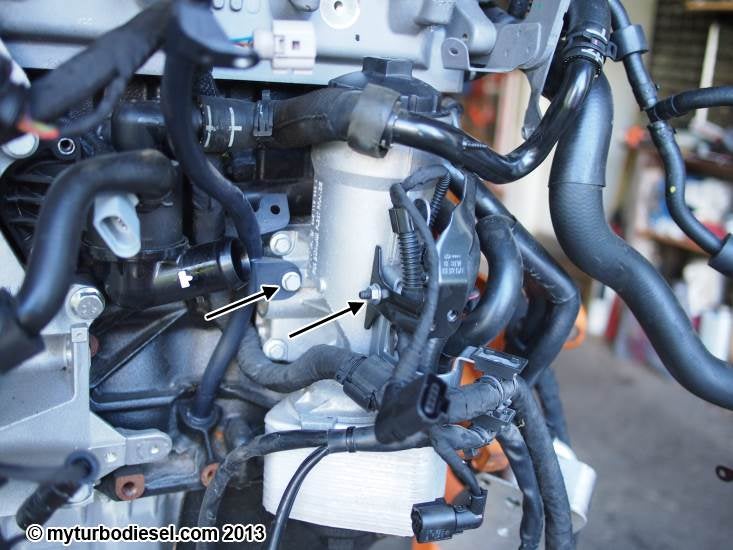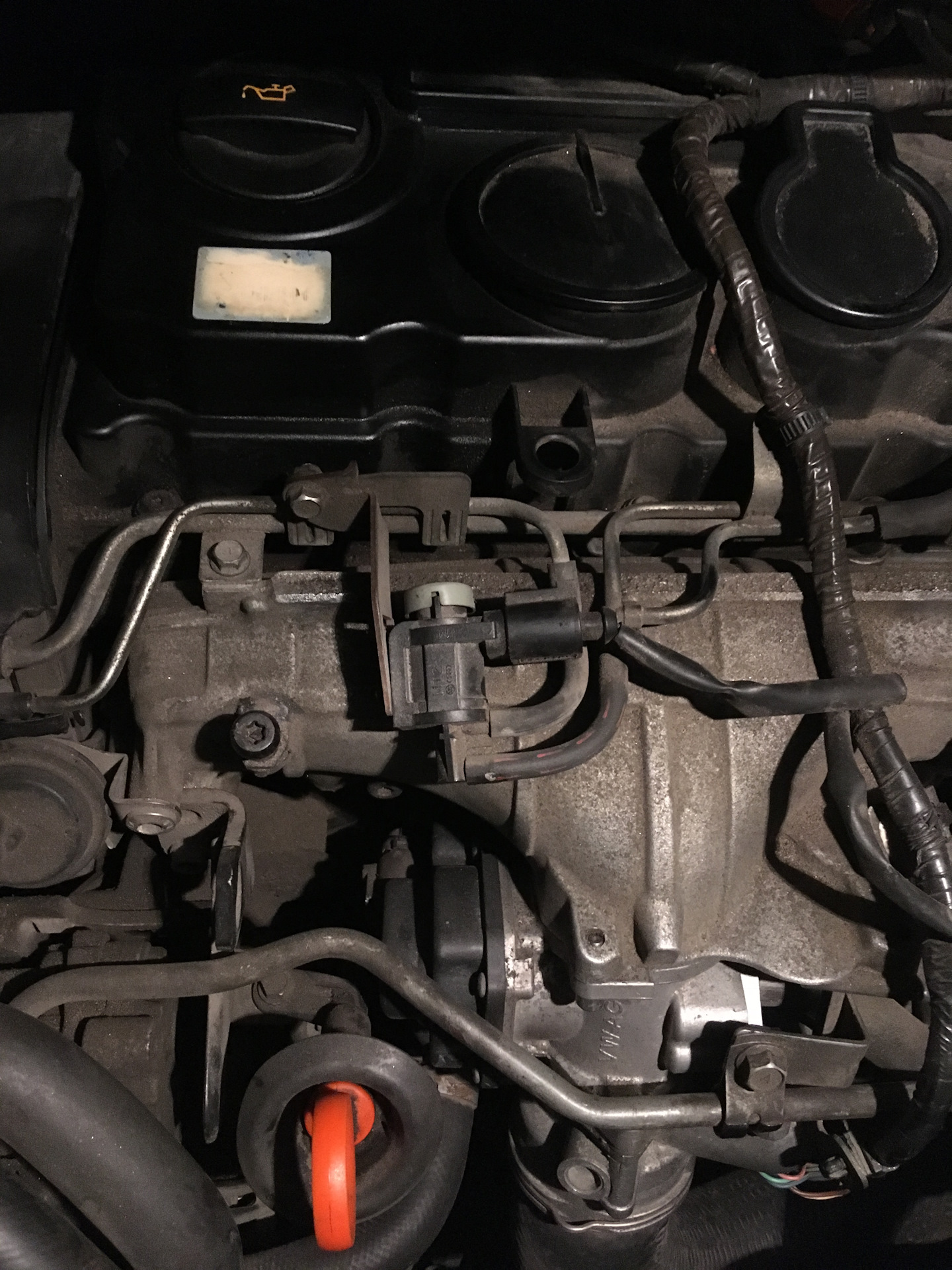
Remove the turbo outlet pipe from the car. Use a 13mm wrench and remove the two bolts holding the heat shield in place and remove the heat shield along with the upper support bracket for the turbo pipe. Working at the rear of the engine remove the three 17mm bolts holding the turbo to the exhaust manifold.
Can you replace the turbo on a Volkswagen TDI?
Repair, replace, or upgrade the turbocharger on your Volkswagen 1.9L/2.0L TDI. Modern turbodiesel engines rely on the turbocharger for proper engine operation and efficiency. Turbochargers are available as a remanufactured replacement, drop-in upgrades, or single or compound turbo kits that require a more in-depth installation.
What is the stock Turbo on a 2009 VW TDI?
The stock turbo on CBEA/CJAA engines sold on VW TDI and Audi TDI 2.0L engines 2009-2014 was the Borg Warner BV43. The VW part number is # 03L 253 056. NOTE: Early 2009 models built before about 6/2009 used a different turbo compressor outlet adapter which doesn't fit later engines.
What kind of Turbo actuator does a VW TDI have?
This article shows how to test or replace the turbo actuator on a TDI engine (vacuum actuator) All mk4 and newer VW TDI Jetta, Golf, Passat, and New Beetle use vacuum actuated rod to move the vanes inside the VNT turbo.
How do you remove a turbo from a Honda Civic?
Remove the two 10mm bolts on the mounting bracket and the hose clamp from the rubber pipe. Remove the turbo outlet pipe from the car. Use a 13mm wrench and remove the two bolts holding the heat shield in place and remove the heat shield along with the upper support bracket for the turbo pipe.

How much is it to replace a TDI turbo?
Current new. The average current price for new "jetta tdi turbo replacement cost" is $239 from the last 240 listings.
How much does it cost to replace a turbo on a VW?
The Best in Auto Repair The average cost for a Volkswagen Jetta turbocharger assembly replacement is between $1,829 and $1,951. Labor costs are estimated between $465 and $586 while parts are priced at $1,365.
How do I replace my turbo?
3:055:16How to Replace a Turbo - YouTubeYouTubeStart of suggested clipEnd of suggested clipIf in doubt replace. With a new part. Now mount the turbo on the exhaust flange checking the turbineMoreIf in doubt replace. With a new part. Now mount the turbo on the exhaust flange checking the turbine gasket fits correctly to give a gas tight seal. Never use a liquid gasket.
How long do VW Turbos last?
Turbos are designed to last the lifetime of the vehicle (or around 150,000 miles); however, it's possible for them to wear out over time depending on how hard you drive the car and the original build quality of the turbo.
How long does a turbo last on a diesel?
Assuming it's not a modified or a competition car, the Turbo on any car built in the last 30 years should last as long as any other component.
How long does it take to replace a turbo?
It's possible to remove the turbos with out the cab. however usually it take less than 2 hours to lift the cab. We would Charge around 8 hours for that job.
Is it hard to replace a turbocharger?
But for some reason, the turbocharger might fail or fail unexpectedly. While it's not exactly difficult to replace a turbocharger, the process requires a moderate amount of patience, expertise, and a host of tools. Also, the procedures in replacing a turbocharger will vary from one vehicle to the next.
How do you change a diesel turbo?
4:458:45How to install a turbocharger. - YouTubeYouTubeStart of suggested clipEnd of suggested clipTo start turbo installation we start by removing the old gasket material from the exhaust manifold.MoreTo start turbo installation we start by removing the old gasket material from the exhaust manifold. And pipe the surfaces of the flange must be clean and have no damage.
Is it hard to install a turbocharger?
Installing a turbo isn't hard for any individual who has the time and tools needed. But it does require a significant time investment and careful preparation before beginning the process.
Can you drive a diesel with a blown turbo?
Although you can still drive with a blown turbo, it would be far more preferable to stop driving it and instead bring it to us to have the turbo repaired or replaced. The longer a blown turbo is left without repair, the more damage it will cause to the car's engine.
How do I know if my diesel turbo is bad?
Five Signs of Turbocharger FailureSluggish Acceleration. As the turbocharger is designed to provide extra power to the engine, when working correctly, acceleration should feel snappy. ... Guzzling Oil. ... Increased Exhaust Emissions. ... Engine Management Light/Check Engine Light. ... Whining Noises.
Why do VW turbos fail?
The #1 cause of turbocharger failure is due to oil contamination. What is it and how can you avoid it? The turbochargers used in the Volkswagen TDI engines should last for the majority of the vehicle's lifetime.
There are many reasons for removing the turbo on your GTI Mark 4, from replacing it to upgrading to a larger turbo to give the engine more power
It is not a quick or easy job, but can be done by a DIY mechanic if you take your time, have the right tools and follow the instructions. This job can take a while for a novice, so make sure you have the car in a secure and weather safe area before you start.
Project Photos
Figure 1 You will need to get access to the oil line for the turbo that connects to the engine at the front. At the front of the engine remove the two 10mm nuts (red arrows) holding the vacuum lines and the two 5mm Allen bolts (yellow arrows) holding the self. With the bolts removed lift the shelf up and off the dipstick tube.
What is turbo replacement?
An essential component of the turbo system, replacement of a failed original turbo cartridge will restore drivability and proper engine performance. This direct replacement Cartridge allows you to repair your turbocharger without needing to purchase an entire turbocharger assembly.
Why does my diesel engine have a compressor surge?
Diesel engines can experience compressor surge when coming off the throttle. The deceleration of the engine can be a restriction on the outlet of the turbocharger causing compressor surge . This can be disastrous on a turbo system which is producing high amounts of boost.
